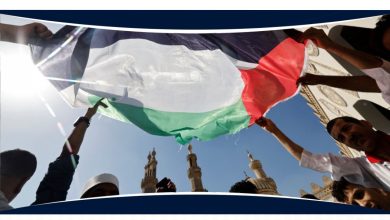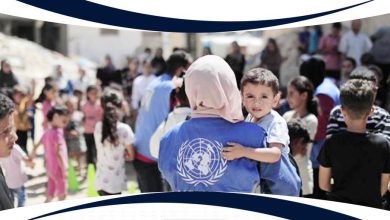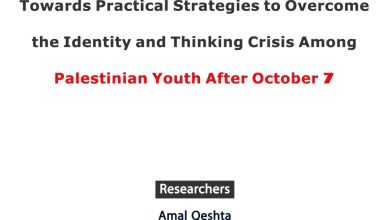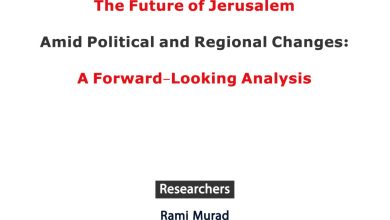Four Years of Gaza Blockade: Some Lessons Learned
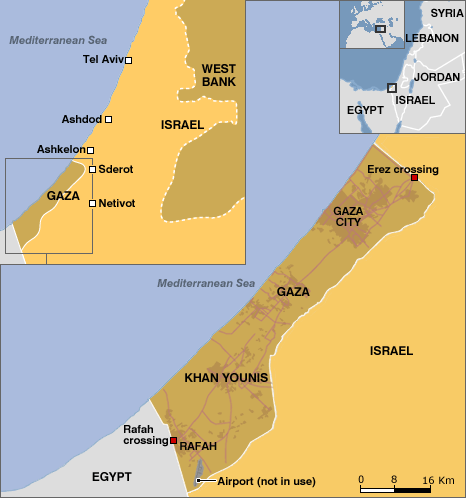
by Omar Sha’ban
GAZA CITY – The Gaza flotilla brought the blockade into sharp relief and highlighted its failures. We must seize this moment and take advantage of the world’s interest in Gaza not only to alleviate the blockade, but more importantly, to find a long term solution for the overarching problem of the occupation
It has been evident to all, albeit late, that the blockade has failed to remove Hamas from power, which was Israel’s intention when it first imposed it. Rather, it devastated the social fabric and economy of Gaza, and made way for a parasitic economic pattern in which trade tunnels have created a nouveau riche business class that benefits from the blockade.
The international community has also made mistakes. The lack of effective action on its part has created a vacuum which left the scene wide open for other regional and international actors – who may not be seeking a peaceful resolution to the conflict – to intervene and acquire popularity in the region. This will, no doubt, have negative effects on any future peace process.
Furthermore, the international community’s focus on banned foods has been distracting decision-makers from evaluating other, arguably more significant, aspects of the blockade: the fact that it also applies to the movement of individuals, books, computer programmes, and even entertainment. All these have a huge impact on the younger population of Gaza. Youth represent almost half the 1.5 million people of Gaza, and two thirds of these young people have never left the enclave. Depriving them of information and entertainment that could connect them to the outside world may have grave consequences for the future.
The current interest in the blockade is a positive one, and it must be taken advantage of on the way to engaging in a wider, comprehensive, solution-based process which prioritises several issues:
First, we must achieve Palestinian reconciliation between Hamas and Fateh. This issue is no more an internal issue, but is rather a basic pre-condition for any peace process. Such intra-Palestinian reconciliation should be accompanied by a total lifting of the blockade, a plan to rebuild Gaza, and the setting of dates for presidential and legislative elections in the Palestinian territories.
At the regional level powers supporting Hamas should work not only to support Hamas’s right to govern, being as it is an elected body, but also to encourage it to fulfil the conditions that would qualify it for international recognition and acceptability. In this Turkey could still play a role. It should take measures to reverse the deterioration in its relations with Israel so that it can function as an effective mediator between Israelis and Palestinians as it had attempted to do with Israel and Syria. Turkey, in particular, could play a positive role in encouraging Hamas to take the serious steps necessary to become a legitimate political party.
While there is a need for immediate steps to alleviate the suffering of the people in Gaza, a partial lifting of the blockade will not be enough to repair relations between Israelis and Palestinians. An integrated process aimed at rebuilding trust between the two nations must take place. On the road to a resolution, it will be necessary to rebuild the structures that were destroyed during the Gaza War and to reactivate factories that were paralyzed because of the blockade, thus boosting an economic sector supportive of peace.
Most important, however, is to mend the minds and souls of hundreds of thousands of Gaza youth who have been deprived of choice in educational resources, thus living for over three years in an intellectual prison. Without this vital step, the youth of Gaza will not grow up to become adults who are interested in peace.
To make all this happen, organisations – regional and international, political and grassroots – must mobilise and join forces. Politicians must see the value of a partnership with civil society, a sector that has proven its capacity to forecast the consequences of flawed policies, is attuned to developments on the ground, and is best placed to educate the public about the value of reconciliation.
With such cooperation between government and civil society, accompanied by vast international support, we can begin to heal Gaza and bring Israelis and Palestinians one step closer to peace.

